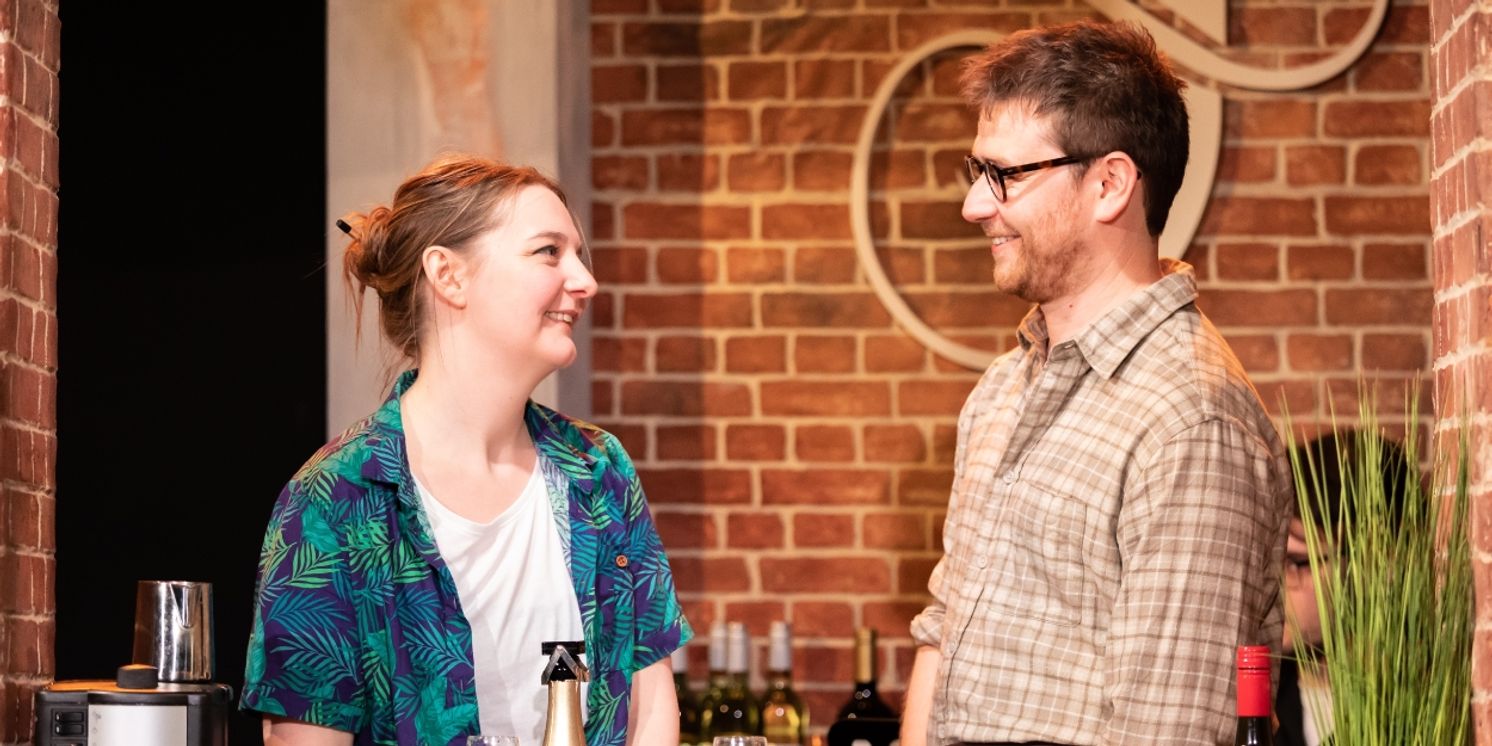Review: TASTING NOTES, Southwark Playhouse
Charlie Ryall and Richard Baker’s new musical has a strong concept, but needs a lot more work.

![]() Just like some meetings should have been emails, some musicals should have been plays. It wouldn't save Charlie Ryall and Richard Baker's new production right away, but it would be a start. The concept and structure of Tasting Notes is compelling and rather original, but the final result is a bit of a slog with an unmemorable score and a surplus of both narrative and aural material directed by Shelley Williams.
Just like some meetings should have been emails, some musicals should have been plays. It wouldn't save Charlie Ryall and Richard Baker's new production right away, but it would be a start. The concept and structure of Tasting Notes is compelling and rather original, but the final result is a bit of a slog with an unmemorable score and a surplus of both narrative and aural material directed by Shelley Williams.
Six characters experience the same exact day in a London wine bar. Ryall essentially explores the notion of sonder, attempting to prove how every person we meet is living a life as vivid and rich as we are. Except, they end up being dull, interchangeable figures and we don't see any of the complex inner workings of their intense existences.
An owner who's so exhausted she opts to sleep in the back office rather than at home (Nancy Zamit), an out-of-work actress with a severe lack of communication skills (Ryall herself), a young gay man who gets hate-crimed outside a club (Sam Kipling), a cat-obsessed guy with inadequate social savviness (Niall Ransome), a Hungarian kitchen porter with a problematic son (Wendy Morgan), and the local drunk (Stephen Hoo) are the protagonists of this tale. Straight off, that's a lot - but Ryall handles it well.
She introduces them separately, dividing the net two hours quite evenly among the roles, giving a fair amount of stage-time to all. But two or three songs each are simultaneously too many and not enough to paint a picture of their lives. A large number of them are neither investigations of their character's intimate world nor a service to the plot.
We get a song dedicated to how cats are better than humans, but there isn't one about how Oliver got so jaded that he trusts his pet more than people. It's this type of imbalance that prevents the piece from being an adequate exploration of any kind. So, the songs become unnecessary as they don't offer anything more than we already know (which is very little).
It's also a shame that they all sound like generic contemporary musical music. Baker goes in-depth into how he built the score trying to find a melodic identity for each of them "Even if it isn't noticeable to anyone else". That's the problem; we should notice that everyone has their own interval "from which their important moments are created". After all, they should all be different people with distinct lives.
This said, Tasting Notes isn't without solid ideas. The clear division in smaller acts allotted to each of them allows the audience to focus on them separately. On this occasion, this also highlights the shortcomings of the material, but it's nothing that can't be fixed.
We still appreciate their connections and idiosyncrasies as well as realise how our perception truly is our own alone. We all see things differently - even this show. George hears a blahblahblah whenever he's not the centre of attention. Oliver thinks Maggie doesn't care about him, she thinks the same of him. They both fumble out of a big crush on the other.
According to her colleagues at the bar, Eszter's spoken English is broken and she struggles to understand when she is addressed. Yet, when we meet her, she sings and speaks fluently, but only picks up a vague description of what's being said to her.
The frustrations that only the hospitality industry creates in its employees also seep through, with demanding and patronising customers making an appearance. Williams directs with ease and Alex Musgrave adds an expressive lighting design that features intimate spotlights and sombre changes in hue that highlight Justin Williams's charming set.
On paper, it's a great piece with many ideas. It's a strong concept, but needs a lot more work. This shouldn't be a death sentence for Tasting Notes.
Tasting Notes runs at Southwark Playhouse until 27 August.
Photo Credit: Chris Marchant
Reader Reviews
Videos

